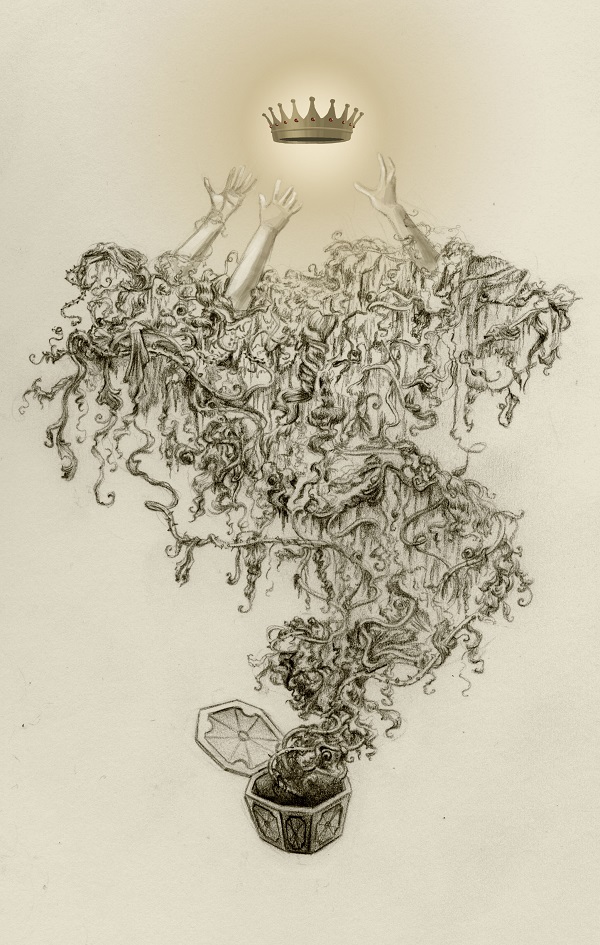Aristocracy is non-transformative
Aristocracy is back! Viewers are fascinated by the English aristocracy of a previous century in Downton Abbey as well as the interactions between the old aristocratic families of Game Of Thrones. Readers are buying the 1,000 page best-seller, Capital in the 21st Century of Thomas Piketty, the French Economist that criticizes a new, though familiar, 21st century aristocracy. These works of fiction and fact remind us of the rigidity and stagnation of a ruling elite. But looking back at ancient times, it is surprising to see reactions and frustrations not unlike our own.
 Long before the foundation of democracy in ancient Greece, many city-states of the ancient world were ruled by the rich and powerful aristocracy. They determined what laws were passed and generally ran the everyday activities of their cities due to them effectively owning a majority of the things in it. The aristocracy, then as it has been since, has always been an exclusive club that rarely, if ever, allowed new members in. Because who wants to share wealth and power right?
Long before the foundation of democracy in ancient Greece, many city-states of the ancient world were ruled by the rich and powerful aristocracy. They determined what laws were passed and generally ran the everyday activities of their cities due to them effectively owning a majority of the things in it. The aristocracy, then as it has been since, has always been an exclusive club that rarely, if ever, allowed new members in. Because who wants to share wealth and power right?
An ancient poet by the name of Hesiod, who is widely considered to be one of the first economists, owned a farm on mount Helicon, located to the north of Athens during the archaic age of Greece. His most famous story is that of Pandora’s Box, in which the first woman is tricked into releasing all manner of evils into the world. Most famous of what came out of the box was not strife, unrest, or jealousy, but hope. Are we to hope?
Hesiod was by no means a poor simple farmer. In fact, he was an owner of said farmers. In one of his better known works titled Works and Days, Hesiod portrays the world in a very negative way. He is both a pessimist and a realist in the sense that he portrays his life as a miserable one. Hesiod’s work depicts five ages of Greece, most of which being good ages to live in. He describes himself as being born in the hard fifth age of iron where supposedly, man is doomed to an existence of unhappy times toiling in the fields forever. He has this negative outlook despite him being luckier than most by actually being a land owner in a time where a huge majority of ancient populations were simple peasants. An essay written by Bernard Knox on Works and Days points out a potential thought after looking at Hesiod’s sour description of his age that “Zeus has abandoned men to a world in which might is right, justice the will of the powerful" ( 13, Knox). This analysis would add credibility to the point made earlier that Hesiod is also a realist. He is a realist because in the Archaic world, and even to an extent today, justice is indeed the will of the powerful. Who really has the power though? The very rich landowning aristocrats do.
One of the roots to Hesiod’s misery can possibly be linked to him knowing that despite being a land owner, bringing in a very good income compared to what the average person made, can’t and would never be able to join the all exclusive aristocratic club. The purpose of explaining this particular story of a man who wasn’t born into the right family is to outline that in the roughly 2700 years since Hesiod’s time, that paradigm has not changed.
To look at a very recent account of modern aristocrats, one may look at the new television series from Bravo! called Southern Charm. “There is a small, ruling, entrenched minority of very established old families in Charlestown” is a quote from the series’ trailer to describe the very wealthy and very old aristocratic families that this reality show will be filming. The remainder of the trailer gives teases to the very hedonistic lifestyle that these modern aristocrats live. These are the types of people many so called “peasants” want to be like. Yet no matter how much they want, unless you were born into the right family, you can never be one of them.
Then, Hesiod offers us an unobtainable hope coming out of Pandora's Box, just like today we can see a non-transformative nature in aristocratic lifestyle and culture. Where those who have all the wealth can essentially indulge in whatever they desire with little to no consequence while the rest of us common folk toil away in the fields wishing we had it so easy.

Comments
No comments posted yet.
You have to be registered and logged in in order to post comments!